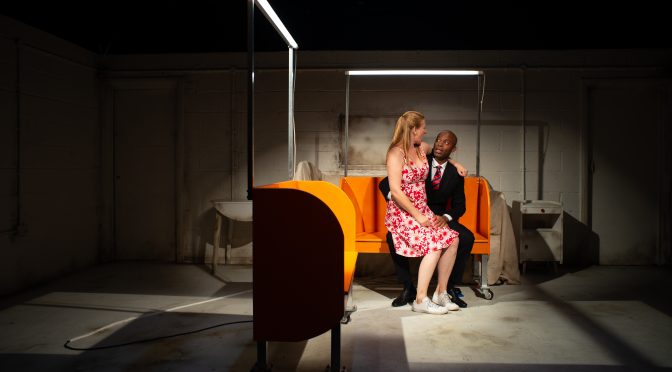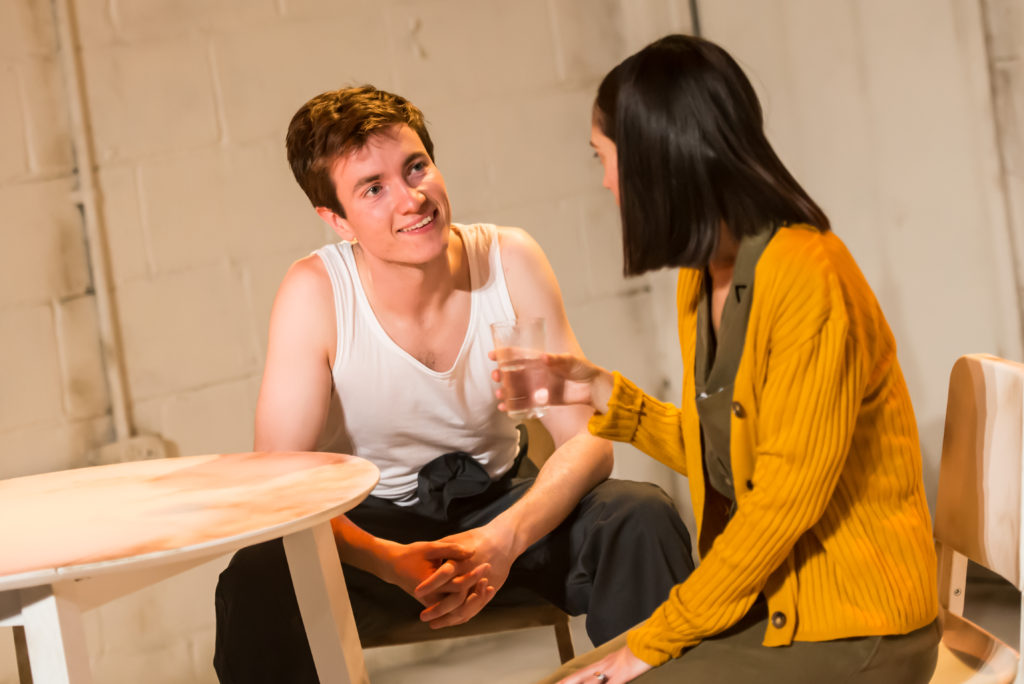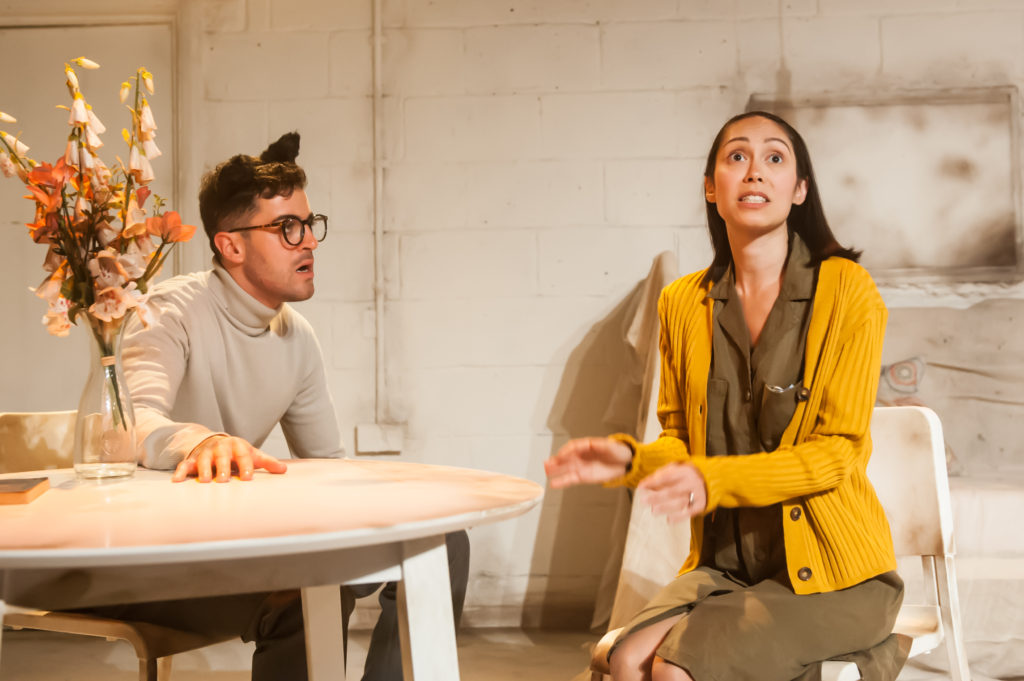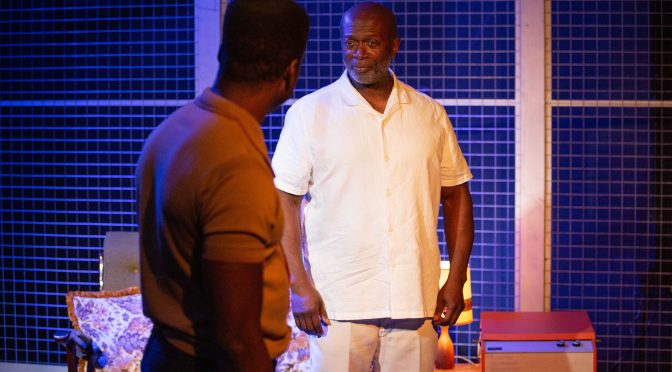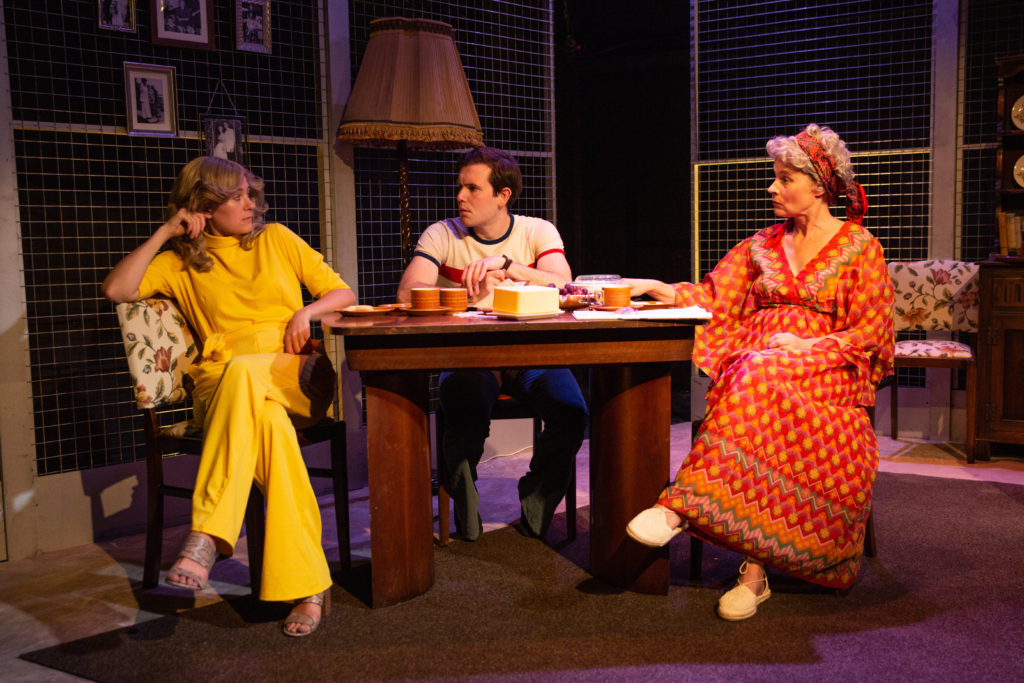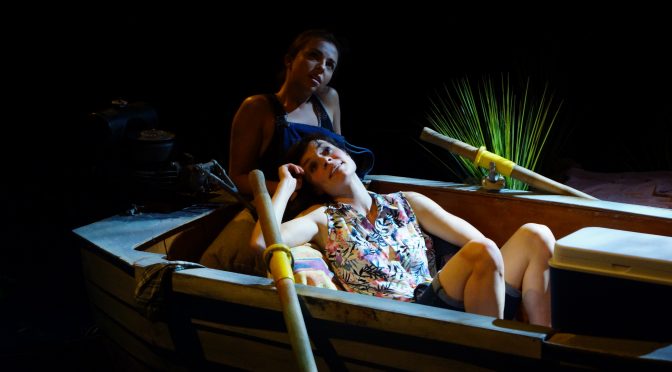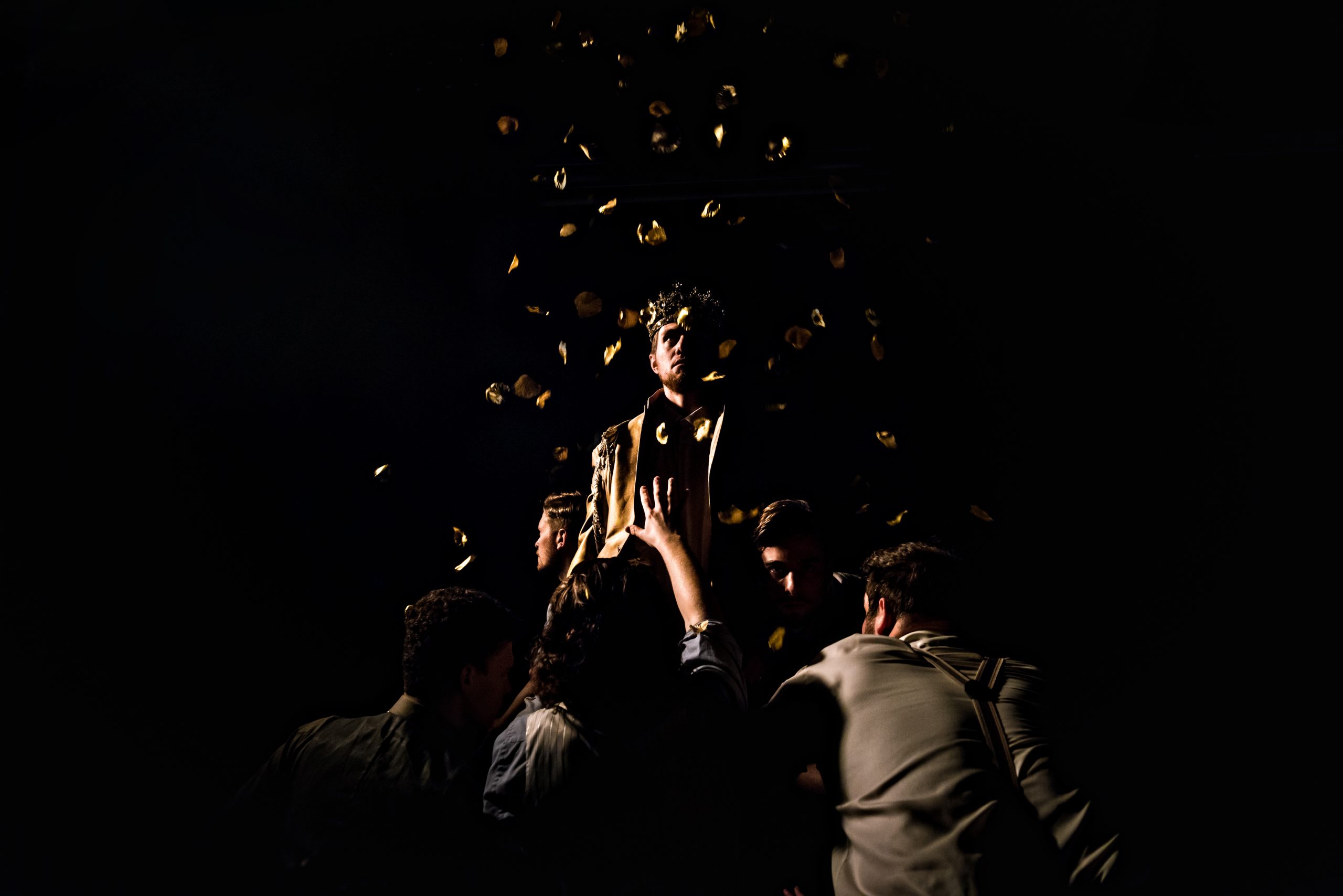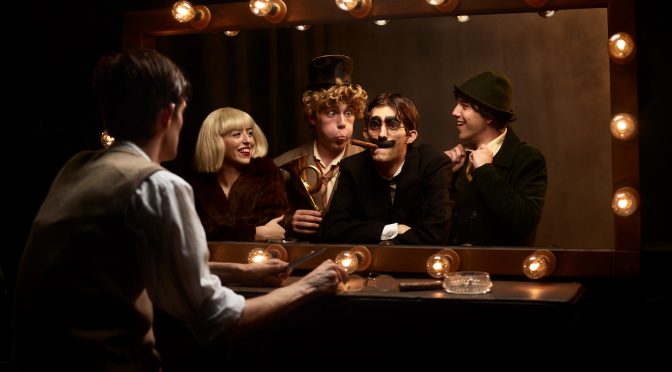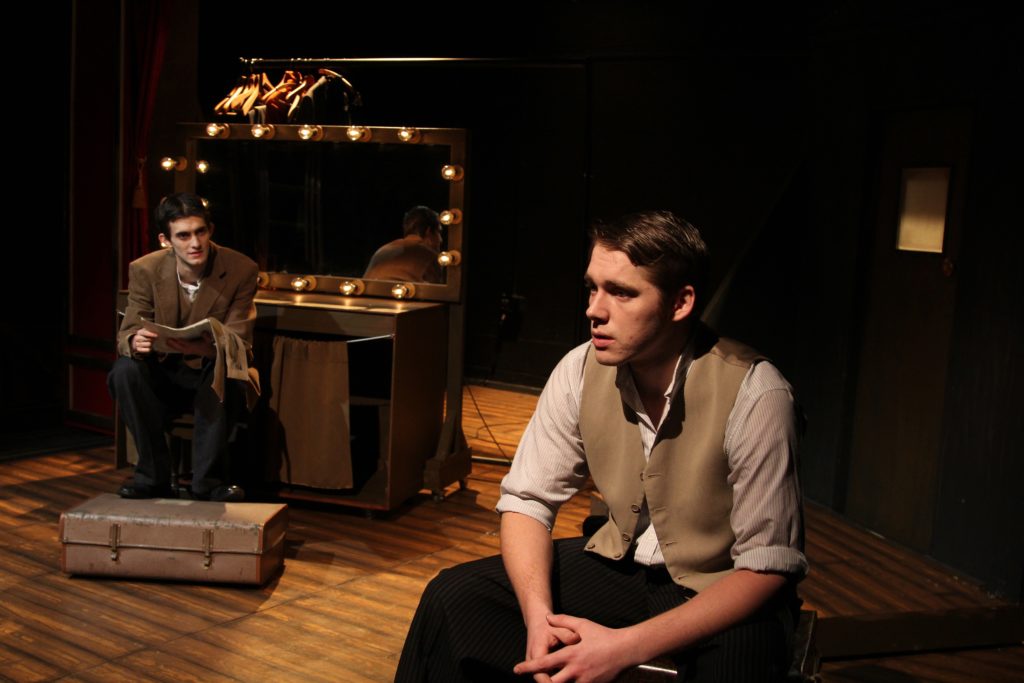Gemma Lawrence’s new play, impeccably directed by James Hillier, is a love story set during lockdown. References to the recent hot – and a bit boring – summer abound. Lawrence conveys the frustrations and problems of this period, notably working from home. Impressive detail includes a character moving back to her family… and her homophobic parent.
Love across the balconies of a London estate adds charm and hope. The obstacles faced by two women are surmounted by humour, drama and a dash of chance. The characters grab your sympathy straight away, impressively, for different reasons. They make great roles for Lawrence as Marie, who is joined by Remmie Milner as Stella, whose complementary energy makes a neat contrast.
My heart sank at first, as Marie starts out with her back to the audience staring at a computer. I didn’t come into the theatre (even one so welcoming, thanks to its lovely staff) to stare at a screen! But Lawrence’s close study of Marie’s anxiety is cleverly developed and has a relevance far beyond our current conditions.
Marie takes to isolation dangerously easily. Living online, and working too much, her relationship to her own body (from food consumed to routines followed) becomes troubled. Stella sees the problem, too: technology means we can “hide ourselves in our pockets”, while a joyous scene of dancing has Milner conveying the thrill of a “full” body experience. All this is, surely, a trend lockdown has exacerbated, rather than created. That debate aside, Lawrence highlights a concerning mental health trend with heartfelt sensitivity.
Importantly, for theatre lovers at least, is how this relationship to the body is conveyed on stage. With the actors apparently controlling Will Monks’ lighting, both become increasingly physically involved in the performance of the story. From glances at one another – anxious then often cheeky – to more and more movement, a sense of complicity is skilfully developed.
Lawrence uses her characters’ anxieties, and the problems of our times, to create a story that should appeal long after this summer is over.
Until 3 October 2020
Photo by Jack Holden


